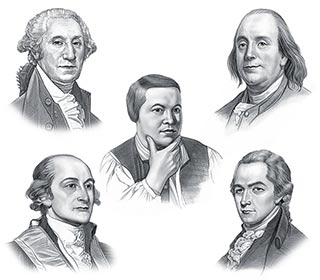- Mercantilism moved goods which were abundant in one location to another place where the goods were scarce
- The supply and demand for goods resulted in higher prices and increased profit
- The discovery and colonization of America propelled foreign trade and increased the volume of merchant activity
- The purpose of the American colonies was to supply raw materials and serve as a market for the finished goods that had been made in England.
- Mercantilism led to significant government intervention and control in the 13 Colonies of Colonial America
- Mercantilism stated that colonies had one main purpose: to enrich the 'mother country'
The History of Mercantilism in England
The history of Mercantilism in England dated back to Medieval times but the large-scale adoption of Mercantilism began during the Elizabethan Era (1558–1603). An early statement on national balance of trade in 1549 was:
"We must always take heed that we buy no more from strangers than we sell them, for so should
we impoverish ourselves and enrich them."
Queen Elizabeth I encouraged exploration and developed a fleet of ships that were capable of challenging the Spanish stranglehold on trade in the Americas. Queen Elizabeth promoted Mercantilism and issued laws such as the Trade and Navigation Acts for the protection and promotion of English shipping.
Mercantilism - Triangular Trade
Mercantilism revolves around trade. Exports are goods sent for sale outside a colony or country. Imports are goods brought into a colony or country. Exported goods earn money. Imported goods cost money. Great Britain followed the most cost effective trade routes to increase profits. Triangular Trade routes across the Atlantic were made possible by the establishment of the 13 Colonies in Colonial America and their surplus of raw materials and complemented Mercantilism. The policy of Mercantilism favored England because the raw materials from the colonies were used to make different products in England - finished goods have a higher value than raw materials. The premise of Triangular Trade was that the different regions would trade goods that they had in abundance in exchange for those goods which were scarce in their own region. The slave trade is an example of the impact of Triangular, with many of the slaves destined to work on the Slave Plantations. Triangular Trade, coupled with the policy of Mercantilism, provided a “favorable balance of trade”. This application of Mercantilism ensured that gold and silver, and all domestic money, stayed in England.
